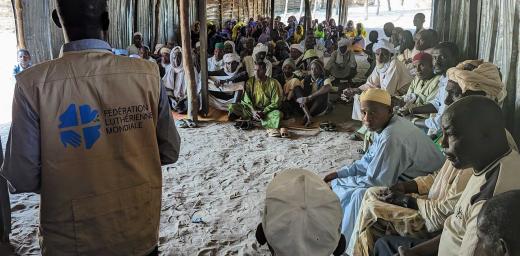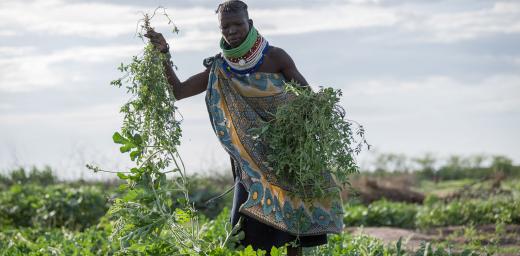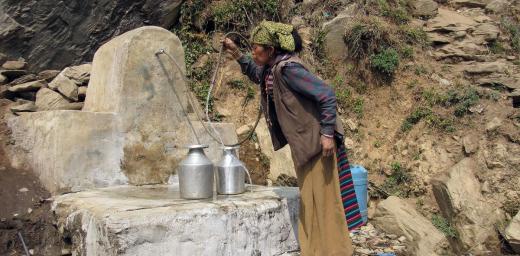Taking leadership #WithRefugees
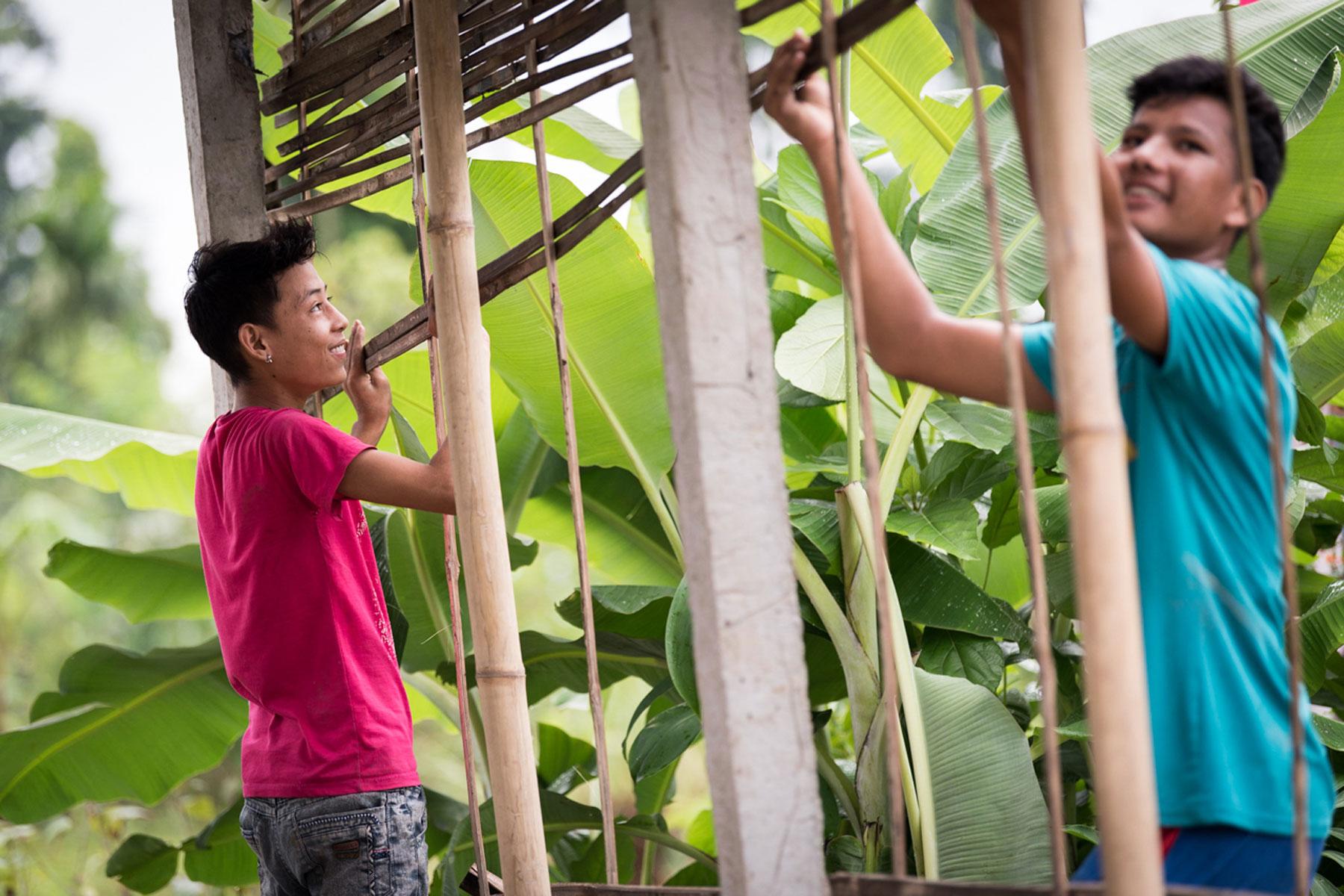
Two young men construct a house in the Beldangi Refugee Camp in southeast Nepal. Photo: LWF/Albin Hillert
Churches engage in service, support empowerment
(LWI) - All over the world, churches are making a difference for people on the move. They provide shelter, food and water, give psychosocial support, and help to build relations with host communities. So what’s at the heart of this response? What are the keys to successful long-term support for refugees?
“Across the globe, The Lutheran World Federation (LWF) World Service currently serves more than 2.3 million people in 25 countries — many of them refugees, internally displaced people, and communities at risk,” says Maria Immonen, LWF World Service director.
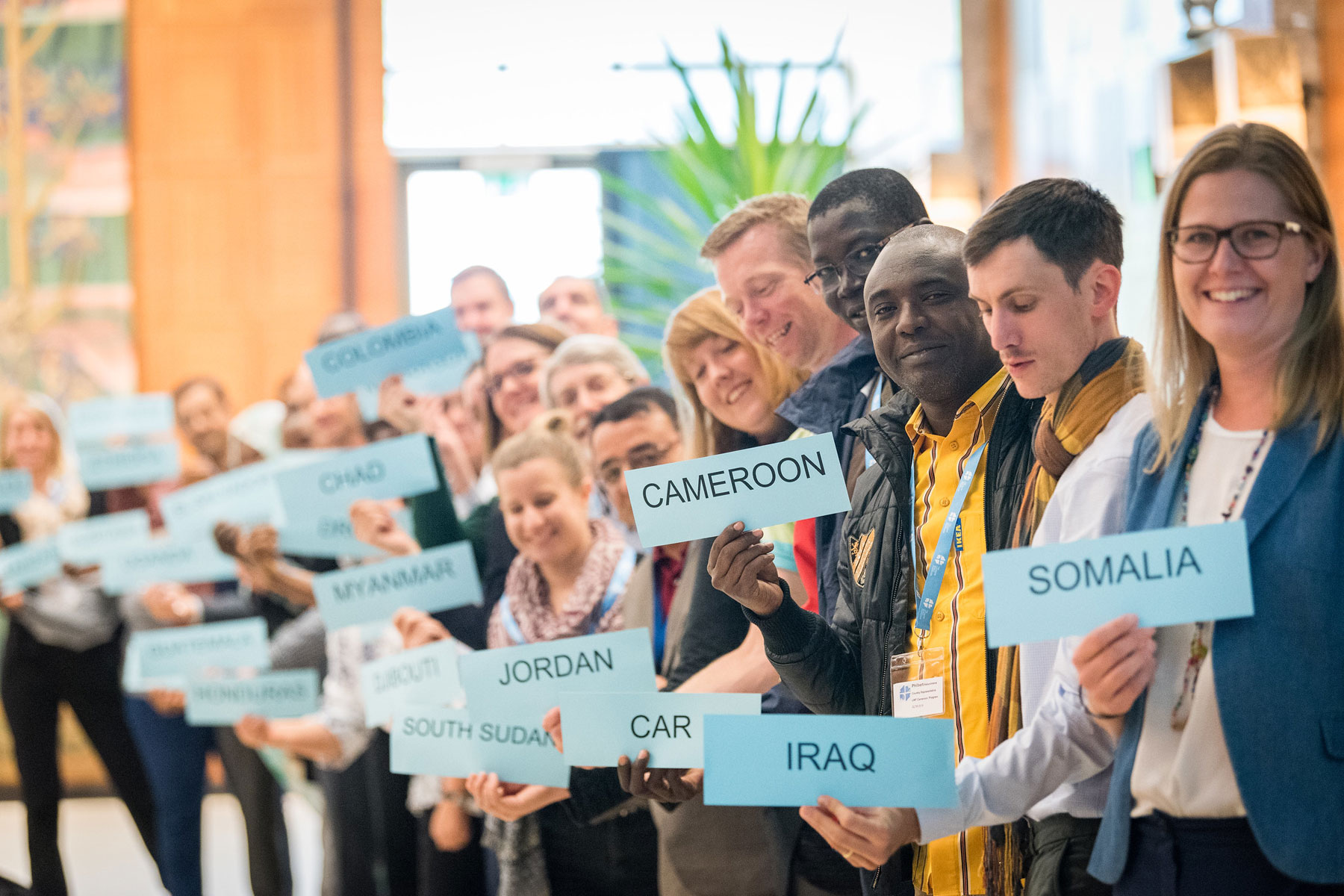
Leadership staff from LWF World Service country programs meet with the Communion Office colleagues in Geneva, May 2019. Photo: LWF/Albin Hillert
Immonen heads a global program that not only provides emergency relief on a short-term basis, but whose interventions include long-term efforts to sustain livelihoods, protection as well as strengthened social cohesion.
“This requires clear strategy, human resources, finances, security protocols and flexibility. But most of all, it requires deep commitment,” she says.
Building social cohesion, with 68.5 million forcibly displaced
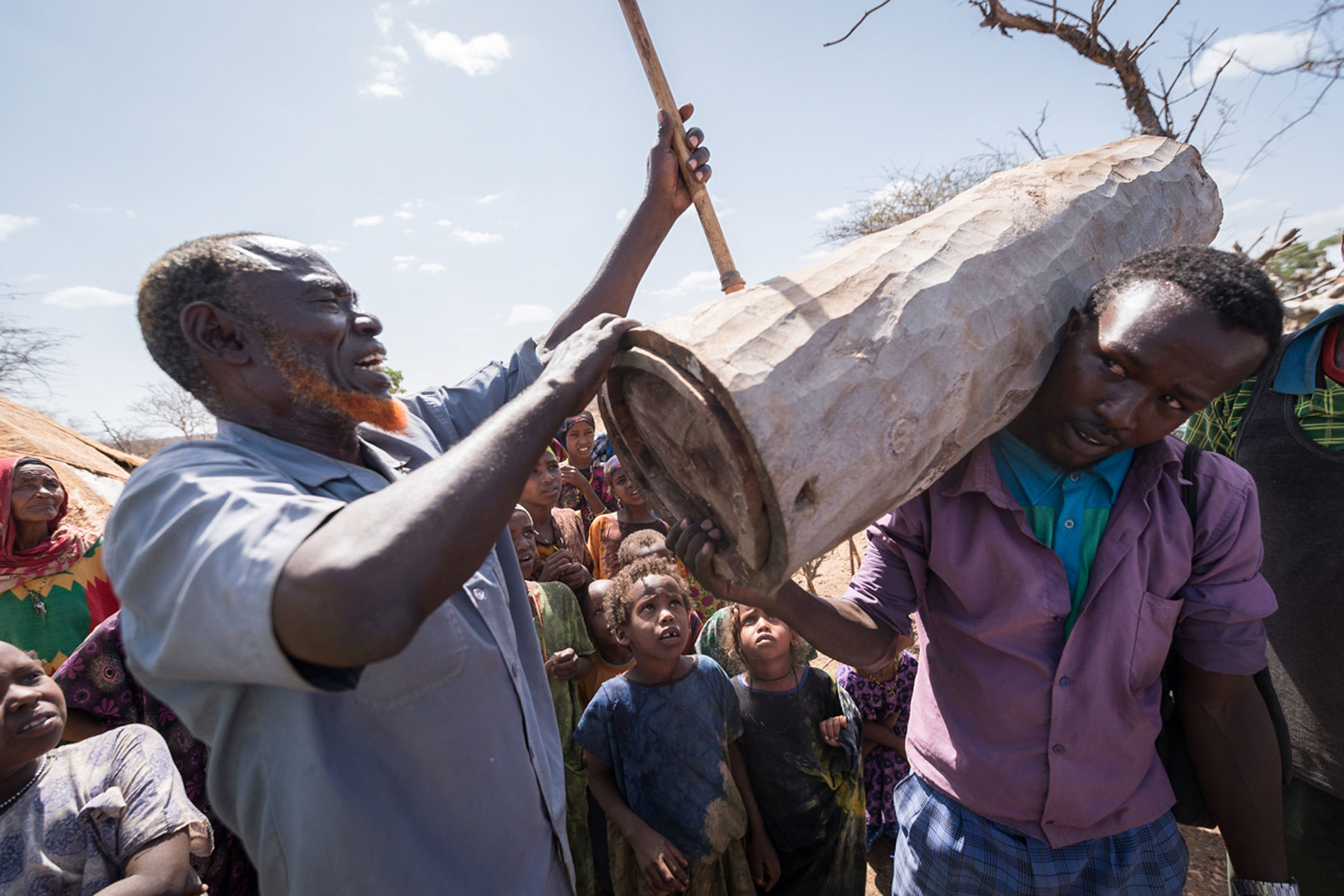
Displaced by conflict and ethnic tensions, community leader Hussein from the Somali region in Ethiopia demonstrates the construction of beehives, through which the former beekeeping community has started to rebuild the livelihoods they lost as they fled. Photo: LWF/Albin Hillert
In 2018, a UNHCR estimate noted that among the 68.5 million forcibly displaced people in the world, 25.4 million were refugees, 40 million were internally displaced, and 3.1 million were asylum seekers.
“In a global context of challenging political changes, and in many cases eroding rights for refugees and people in need, we remain steadfast as people of faith, standing with them” reflects LWF General Secretary Rev. Dr Martin Junge.
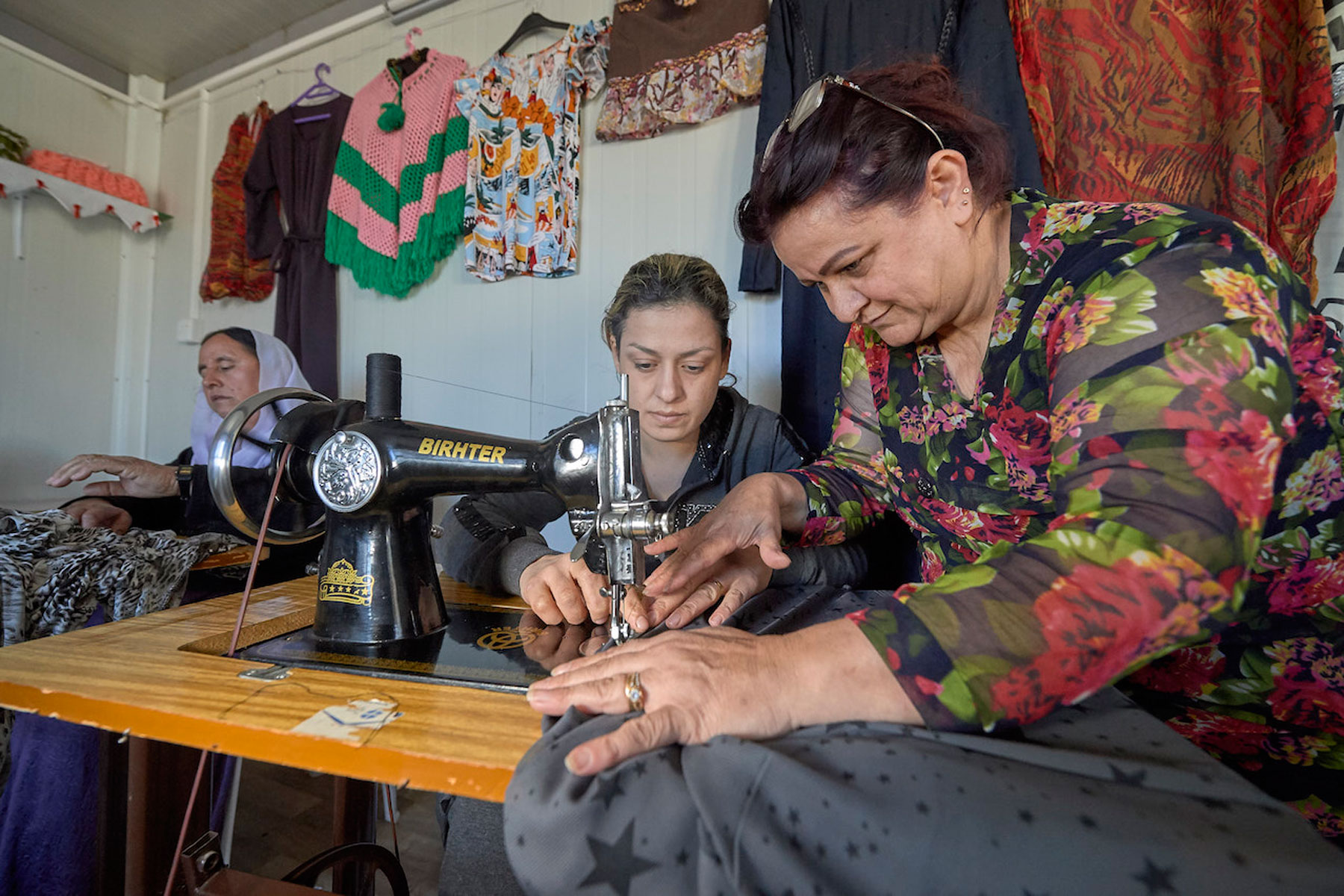
Janet teaches sewing to a class of Yazidi women in a “Women Friendly Space” in a camp for internally displaced persons at Dawodiya in Iraq’s Kurdistan region. Photo: Paul Jeffrey/ACT Alliance.
“But supporting refugees is not just about a commitment to service, but about a commitment to empowerment and advocacy. Our response must be about working with refugees and their host communities, building social cohesion together,” Junge adds.
Examples abound
At the LWF temporary learning center in Ohn Taw Gyi camp in Rakhine state, seven-year-old Ma, who dreams of becoming a teacher, and her two younger siblings, are among the 32,000 children who benefit from the Education for Change initiative.
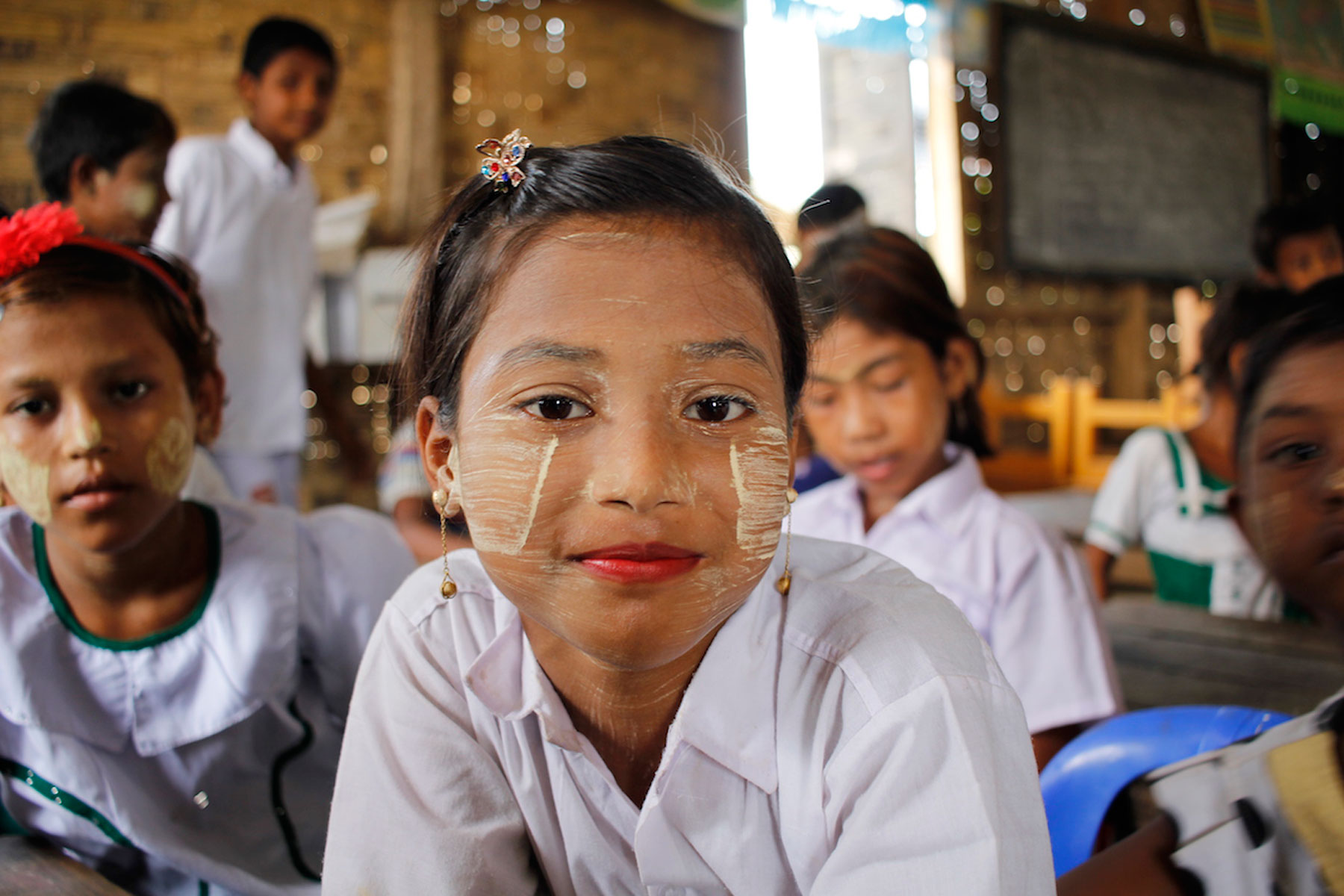
The prospect of a better education is more likely for Ma, seven, a resident of the Ohn Taw Gyi camp, Myanmar. Photo: LWF Myanmar/Isaac Kya Htun Hla.
In 2018 the LWF responded to new humanitarian needs in countries such as Angola, Colombia, Ethiopia, the Democratic Republic of Congo, Kenya, Myanmar, Somalia, South Sudan and Uganda, while continuing to engage in ongoing development programs.
In Cameroon, the LWF supports internally displaced people and refugees from the Central African Republic and Nigeria, largely due to increasing insecurity for people in the extreme north border areas, in view of the upsurge of the Boko Haram group.
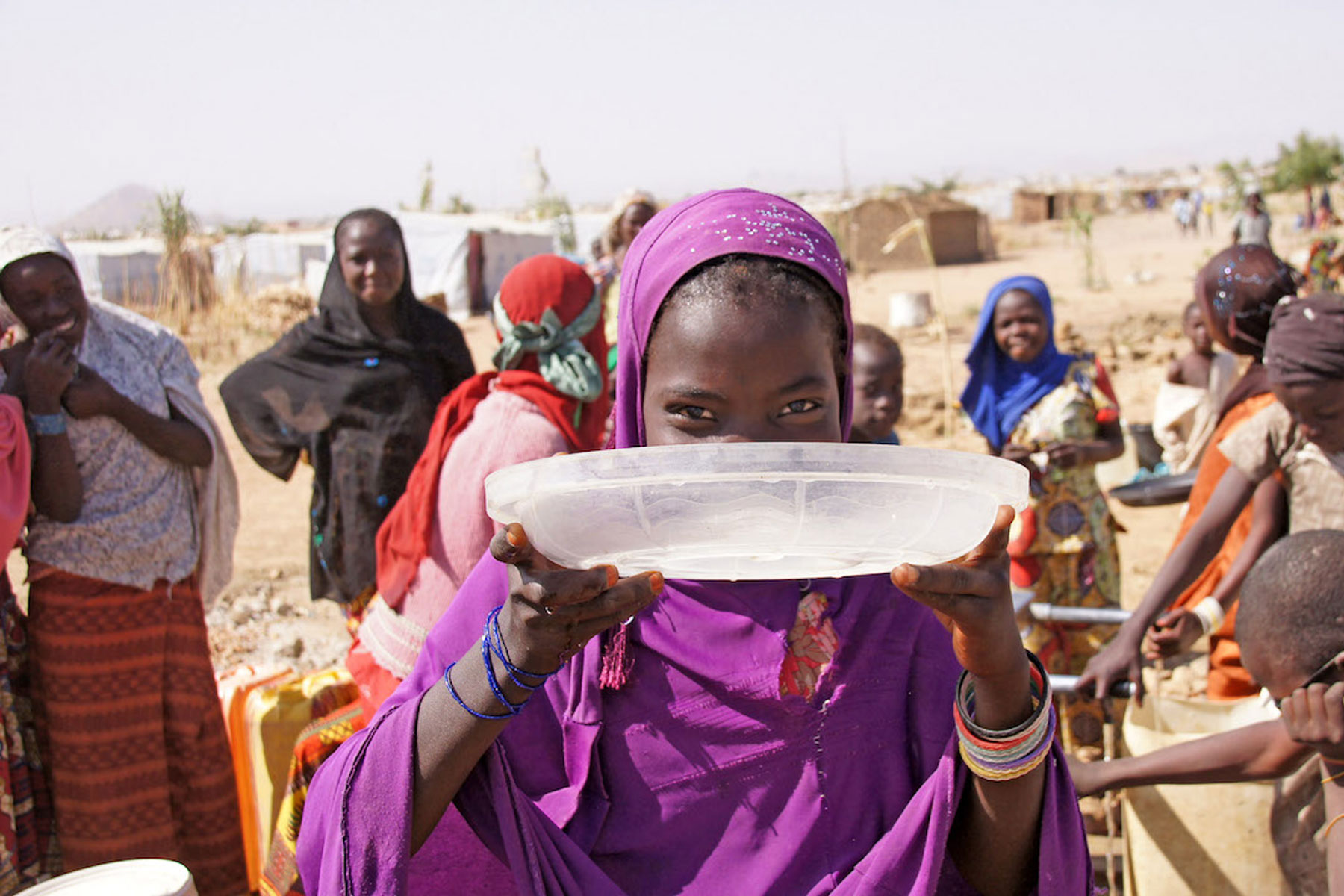
People gather at a tap stand in Minawao refugee camp, northern Cameroon. Photo: LWF/ C. Kästner
At the Beldangi camp for Bhutanese refugees in southeast Nepal, the LWF has handed over to the refugees themselves leadership in overseeing monitoring, maintenance and governance of the camp. Self-help groups assist refugees to develop leadership skills, improve financial literacy, and support income-generating activities to reduce the overall dependency of the community. And, a Bhutanese Refugee Children Forum helps keep the young ones occupied.
Maria Immonen concludes, “If we look at all LWF country programs, both past and present, and add up how many years they have been operating in their respective countries, we see that as an organization, we have decades of experience serving our neighbor — for livelihoods; quality services; for protection and social cohesion. This experience informs all our work, with refugees and internally displaced people, with host communities, at the individual, community and institutional levels — all together in service, for hope and a future.”


